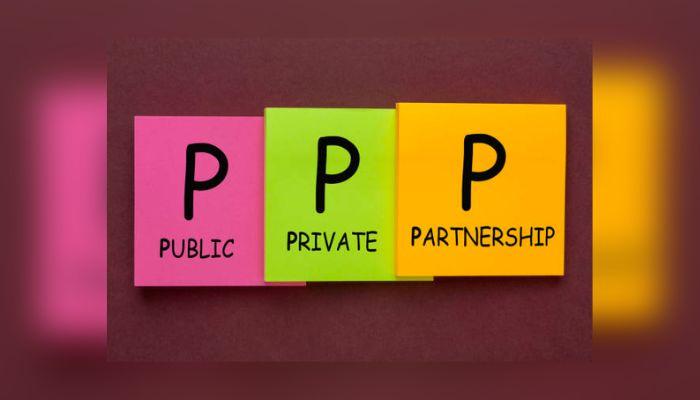Public-Private Partnerships for a Greener Economy
True sustainability demands collaboration. Here’s how the government and private sector can jointly drive Nigeria’s green transformation.
Nigeria is no stranger to grand sustainability ambitions. From its Nationally Determined Contributions under the Paris Agreement to the Renewable Energy Master Plan, the nation’s green aspirations are clear. Yet in practice, implementing sustainable energy, infrastructure, agriculture, and urban systems remains slow. The missing link is not vision; it is execution. That’s where Public-Private Partnerships (PPPs) must evolve from buzzword to backbone.
True sustainability demands collaboration. The public sector cannot deliver transformation alone, and the private sector cannot remain a passive financier. When designed well, PPPs can mobilise capital, transfer technology, and embed accountability into green projects. But to realise this potential, Nigeria must strengthen the way PPPs are structured, governed, and monitored.
Why PPPs matter for a green agenda
The scale of Nigeria’s climate and infrastructure gaps exceeds public funding capacity. Green transport, renewable energy, waste management, and resilient cities require large upfront investment, steady revenue streams, and operational excellence. PPPs can bridge that gap by leveraging private finance alongside government guarantees.
They also incentivise performance. Contracts can tie payments to emissions reduction, service delivery, or energy efficiency targets, embedding ESG metrics into operations and discouraging underperformance. Beyond finance, PPPs open doors to innovation, as private partners bring new technologies, leaner cost structures, and adaptive management.
In Nigeria’s energy sector, PPP models are already being explored to expand off-grid renewables and integrate clean power into the grid. In agriculture, the Nigerian Meteorological Agency has called for climate-smart PPPs to provide forecast services for agribusinesses, enabling farmers to plan for weather risks. These are promising beginnings, but the journey is still early.
Pitfalls that sabotage green PPPs
Despite their promise, many PPPs falter. Poorly scoped contracts, weak regulation, and lack of transparency often derail projects. Some fail because risks are misallocated, the government guarantees too much, or private partners shoulder excessive uncertainty. Others collapse under unrealistic tariffs or political interference.
Environmental and social safeguards are also frequently overlooked. Projects labelled “green” sometimes neglect ecosystem restoration, emissions tracking, or community engagement, leading to public backlash. Moreover, limited technical capacity within ministries and regulatory agencies often results in weak contract negotiation and oversight. Political transitions further complicate matters when the new administration attempts to renegotiate or cancel existing deals.
Building effective green PPPs
To make PPPs a reliable vehicle for sustainable transformation, Nigeria needs stronger foundations. Key steps include:
1. Policy clarity and risk guarantees:
A consistent national green infrastructure roadmap is essential. Government must provide credible risk mitigation instruments such as partial guarantees, currency hedges, and off-take agreements to attract investors.
2. Standardised and modular contracts:
Developing PPP templates for key sectors (renewable energy, waste management, and green transport) with ESG clauses will simplify negotiation and reduce transaction costs.
3. Transparent procurement and competition:
Independent project preparation facilities should vet projects and publish feasibility studies. This curbs political capture and ensures only viable, high-impact projects move forward.
4. Regulatory oversight and ESG benchmarking:
Strengthening institutions like the Infrastructure Concession Regulatory Commission (ICRC) is vital. PPP contracts should include measurable ESG indicators, periodic audits, and independent verification of environmental performance.
5. Capacity building:
Both public officials and private partners need training in contract structuring, risk evaluation, and ESG integration. Technical knowledge is the bedrock of sustainable execution.
6. Pilot projects and blended finance:
Nigeria should start small: solar mini-grids, green bus networks, climate data hubs and scale up. Blending grants, concessional funds, and private capital can reduce risk and attract long-term investors.
7. Community inclusion:
True sustainability includes people. Local communities must benefit through jobs, training, and participatory monitoring. Without social buy-in, projects face resistance and reputational risk.
Spotlight: blue economy, cities, and renewables
Nigeria’s emerging blue economy offers fertile ground for PPP innovation. Coastal infrastructure, marine resource management, and ecotourism can attract private investment if guided by climate resilience and conservation principles. With coastal erosion and pollution threatening livelihoods, a PPP framework anchored on restoration and green growth could unlock a new wave of sustainable enterprise.
Urban infrastructure presents another opportunity. The Rebuild Lagos Trust Fund, while not strictly green, shows the potential of joint investment in urban renewal. The next frontier is to green these assets by retrofitting public buildings for energy efficiency, solar integration, and stormwater management.
In energy, companies like Arnergy have shown how private innovation can drive access through pay-as-you-go solar systems. But scaling such models requires PPP support for grid interconnection, technical standards, and consumer protection. Public agencies can de-risk these ventures through subsidies or performance-based incentives tied to verified impact.
From aspiration to accountability
Green PPPs are not quick fixes; they demand discipline, transparency, and patience. Yet as Nigeria confronts mounting climate pressures, they remain one of the few mechanisms capable of bridging ambition with action.
For the private sector, the call is to look beyond short-term profits and invest in long-term impact. For the government, the challenge is to move from transactional politics to institutional continuity while building systems that outlast electoral cycles.
Ultimately, Nigeria’s green future will not be built by government or business alone, but by a partnership rooted in shared responsibility. When structured with integrity, public-private partnerships can transform from contractual arrangements into engines of resilience, prosperity, and environmental stewardship.
If Nigeria gets this right, PPPs won’t just deliver infrastructure; they will deliver trust, innovation, and a greener economy for generations to come.
Sarah Esangbedo Ajose-Adeogun is the Founder and Managing Partner at Teasoo Consulting Limited, a foremost ESG consulting firm. She is a former Community Content Manager at Shell Petroleum Development Company and served as the Special Adviser on Strategy, Policy, Projects, and Performance Management to the Government of Edo State. She is also the host of the #SarahSpeaks podcast on YouTube @WinningBigWithSarah, where she shares insights on leadership, strategy, and sustainable growth.

